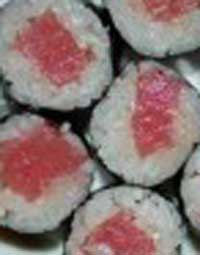The Salmonella Bareilly outbreak strain that has sickened at least 160 people in 20 states and the District of Columbia is a genetic match to the strain found in recalled tuna produced by Moon Marine USA Corp., Wisconsin health officials announced today.
 The Wisconsin Department of Agriculture Trade and Consumer Protection (DATCP) and the Wisconsin State Laboratory of Hygiene (WSLH) worked together to find the match that establishes the tainted tuna as the source of the outbreak.
The Wisconsin Department of Agriculture Trade and Consumer Protection (DATCP) and the Wisconsin State Laboratory of Hygiene (WSLH) worked together to find the match that establishes the tainted tuna as the source of the outbreak.
DATCP found Salmonella Bareilly in a sample of the recalled tuna and in a sample from a spicy tuna roll made with the recalled tuna and sent isolates of the strain to WSLH in Madison where health officials used Pulsed Field Gel Electrophoresis (PFGE) to find its genetic fingerprint.
“What we do is take the DNA and cut it with enzymes,” said David Warshauer, deputy director of communicable disease at WSLH. “Then we put the cuts onto a gel, like a slab of Jello.” For 18-22 hours, an electric field pulses the gel and the DNA wiggles through creating a pattern similar to a bar code. Injecting these patterns with dye allows scientists to see the patterns and look for matches.
In this case, the pattern from the Moon Marine tuna matched that of the pattern taken form isolates of those who became ill. At least 15 Wisconsin residents are among the 160 people who have been sickened by this outbreak. Six are from Milwaukee county, two are from Washington county and seven are from Waukesha county.
The recalled tuna wasn’t sold to individual consumers, but may have been used as an ingredient in sushi, ceviche or other foods made with raw fish. The investigation into the outbreak is ongoing




